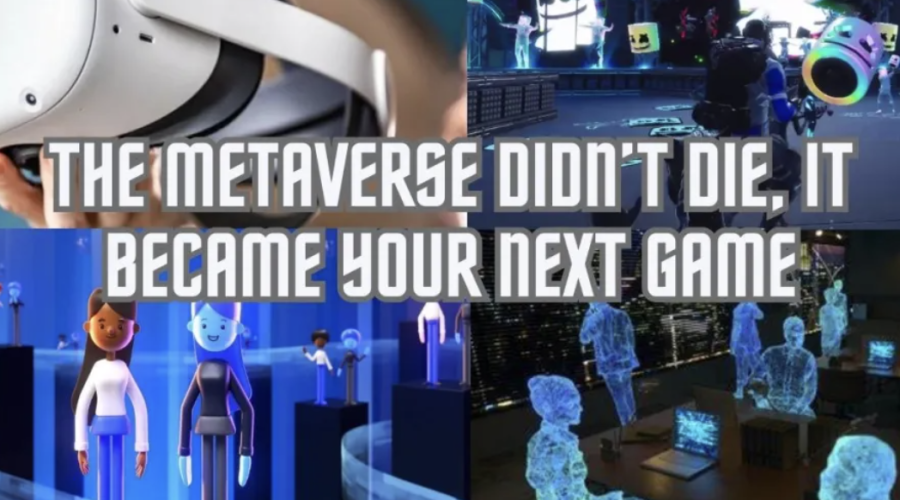The Metaverse Didnt Die, It Evolved Into Your Next Game
A few years ago, the term “Metaverse” was tech’s biggest buzzword. Major companies, such as Meta, Microsoft, and Epic Games, were pouring billions of dollars into the concept of persistent virtual worlds. However, they were only met with media skepticism, declining interest, and headlines suggesting its demise.
But fast forward to 2025, the Metaverse did not die it evolved. It just quietly evolved into something more practical and engaging: your next gaming platform. The concept, however, is shaky and has piqued the interest of many who look forward to what the future of the Metaverse holds.
From Hype to Gameplay
When the Metaverse was first introduced, it was often tied to grand visions, such as virtual offices, digital real estate, and cartoonish avatars attending meetings. Critics were quick to dismiss the Metaverse as a tech utopia that no one wanted.
Behind the scenes, however, game developers saw potential not in reinventing the internet but in using the Metaverse to increase immersion, continuity, and cross-platform interactions. Tencent abandoned VR hardware in pursuit of the Metaverse, highlighting its importance. The Metaverse has now shifted from being a single-digitized universe to a system of interconnected gaming ecosystems.
Gaming Was the Real Killer App
While metaverse enthusiasts were dreaming of replacing emails and video calls, gamers were already exploring interactive and immersive digital experiences through games like Fortnite and Minecraft. These games weren’t weren’t just hit. They served as Porto-metaverses, blending gameplay with social spaces and more.
Additionally, Sony’s significant investment in live service and extended reality gaming showcases a step forward toward creating persistent, immersive gaming experiences reminiscent of the Metaverse. Recently, the rise of multiverse-native games, such as Core, Horizon Worlds, and The Sandbox, has further blurred the lines between games and platforms.
These digital worlds aren’t just backdrops. They evolve, adapt, and update based on player behavior and community events. The Metaverse didn’t collapse; it just integrated itself into the core loop of gaming.
Persistent Worlds, Real Rewards
One of the biggest promises of the Metaverse, “persistence,” has found its true home in gaming. Game worlds that keep running and evolving even when players log off are now common. What was once a special feature is now expected in modern games.
In No Mans Sky, planets change in real-time, even without player input. Similarly, in Eve Online, players drive the economy and shape the game’s history. These examples show how evolving game Metaverses are becoming a new trend. Building on tokenized economies, user-owned assets, and cross-game progression, the Metaverse has evolved to merge with gaming.
Social Interaction Meets Immersion
At its heart, the Metaverse was always about social presence. The gaming platforms are making this a reality, not just through corporate meetings but through in-game concerts, collaborative building, and voice-integrated dynamics. VR and AR are no longer mandatory entry points.
Instead, players can now connect across PCs, consoles, and mobile devices, participating in shared experiences such as the Travis Scott Fortnite concert or virtual escape rooms. These events are not just spectacles but are proof that gaming is the social engine of the Metaverse.
Cross-Platform, Cross-Reality
Interoperability, once just an idea in terms of the Metaverse, is now becoming real in gaming. Platforms such as Roblox and Epic Games’ ecosystem enable cross-platform avatars, currencies, and achievements, while cloud gaming allows players to transition seamlessly from one screen to another.
The Future Is Playable
If the early version of the Metaverse was about digital offices and shopping malls, today’s Metaverse has evolved and is much more engaging and playable. It’s interactive, fun, and centered around what players actually want to do, which is to play, create, and connect.
While the buzz has faded, what remains is a sturdy foundation upon which the gaming industry is actively building. As we move into the future, we will see more and more interactive and immersive experiences better than ever before. Gaming didn’t save the Metaverse; it became the Metaverse.
Tech4Gamers







